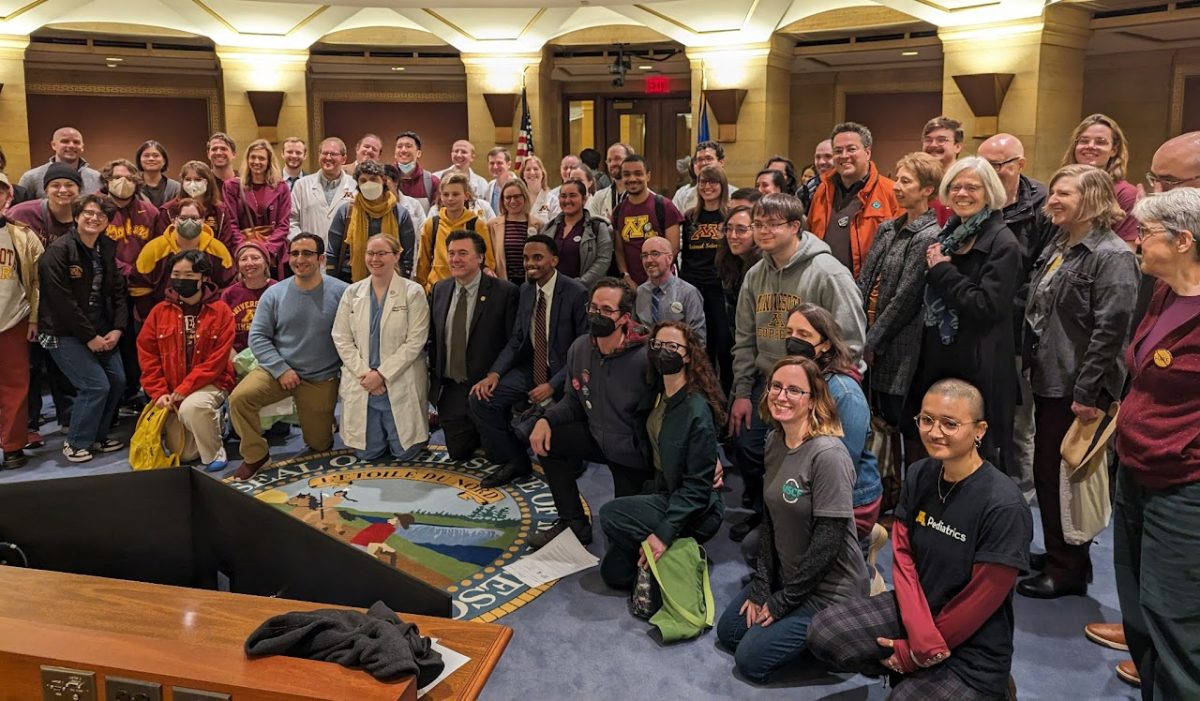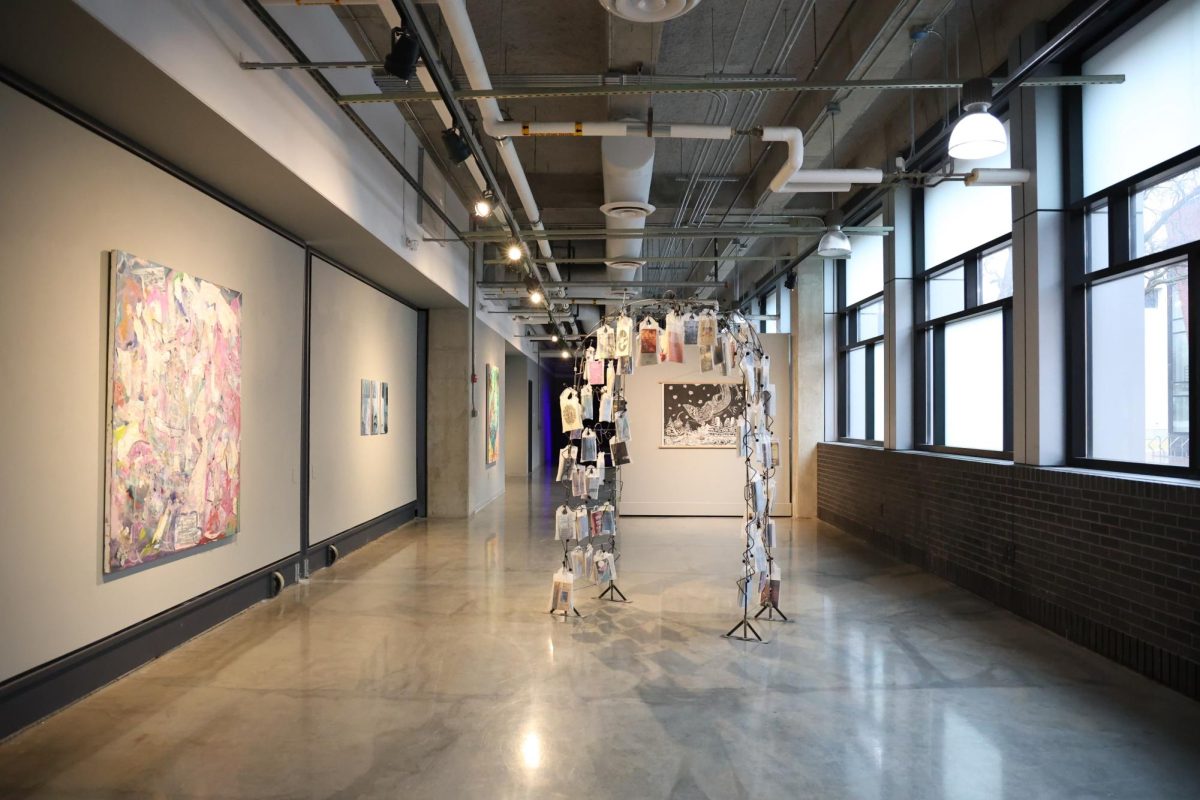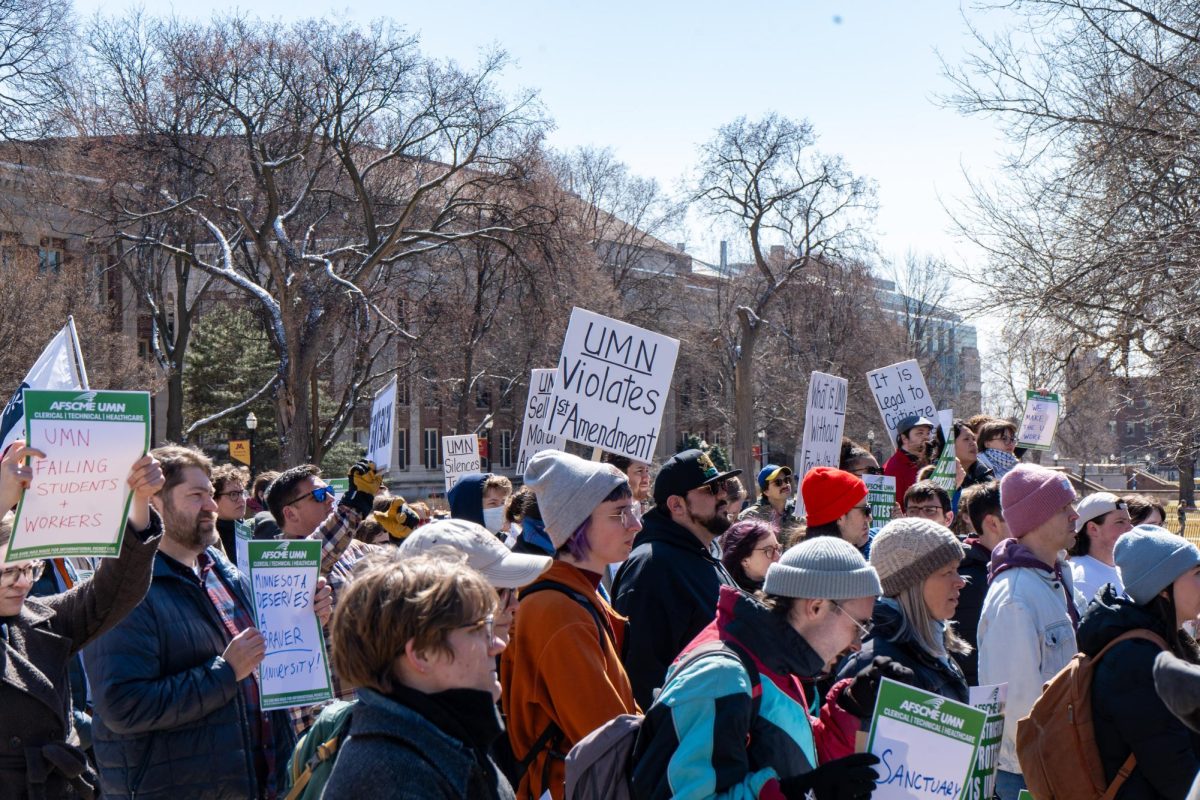University of Minnesota employees are looking to create a union, but existing guidelines under the Public Employment Labor Relations Act (PELRA) do not allow them to.
Student workers and faculty created an online petition to change current PELRA guidelines – last updated in 1991 – and it has over 2,000 signatures from students, staff and faculty.
The petition, addressed to Interim President Jeff Ettinger and the Board of Regents, requests changes that would allow for student workers who receive financial aid or work-study funding, in addition to staff and faculty, to create and join a union.
“PELRA outright prohibits large categories of University workers from organizing by denying their status as public employees,” the petition said.
Ash Smith, a fourth-year sociology, criminology and justice student at the University who works for the Office of the Registrar, said the current conditions at his job inspired him towards unionization.
“Currently, we don’t have the right to join a bargaining unit and have fair contracts to be a union,” Smith said. “Our peers who are fortunate enough to not receive aid can, but because we receive financial aid, we can’t.”
With frequent changes in hours and policies at his on-campus job, Smith added he found himself having to get a full-time job that would meet his wage expectations.
“I made that decision based on how I was being treated by upper management and HR,” Smith said. “It was exhausting to not know what HR and admin are going to do with your hours and pay.”
Student workers are paid the University’s minimum hourly wage of $15 and are not allowed to work over 20 hours per week, according to Smith. He said these wages are often not enough to afford basic goods, such as groceries, and not enough to afford median rent.
There are only nine students who work at his job who specialize in certain aspects of the job and are not able to take extra shifts, according to Smith.
“We were going to be overworked and even more underpaid than we already are for the work we do,” Smith said.
Tracey Blasenheim, a faculty member at the University and a member of the PELRA Coalition, said he became a full-time employee 10 years ago after doing work as a graduate student.
It was during that transition he said he learned about disparities between graduate student pay and full-time employee pay for the same amount of work.
“Because I finished my degree, which in most cases would lead to a pay raise, I made 40% less for the same work,” Blasenheim said. “I lost my healthcare, so it was a shock to me. It really opened my eyes that the way funding is provided for education in this university is not okay.”
Blasenheim said professors get released at the end of every semester due to their contracts, which are structured for short-term tenure, which hinders the ability of professors to connect with students.
“Many of us lose contact with our students,” Blasenheim said. “I’ve had students miss out on letters of recommendation from me because they couldn’t get in touch with me. They built relationships that they wanted to continue.”
As he researched ways to mitigate these issues, he said he found out other schools, such as Rutgers University, had a union that initiated a successful strike to advocate for changes similar to what Blasenheim is looking for.
“The law says that we, as public employees, have a right to collective bargaining,” Blasenheim said. “The University has a very strange system. These mandated bargaining units that were put in the early ‘80s are extraordinarily uncommon nationwide.”
Sam Reuter, a second-year University student in the Bachelor of Individualized Studies program who also works with the Office of the Registrar, said it is important for student workers to have the right to unionize.
“Being able to organize and have some kind of bargaining power is really important,” Reuter said. “A lot of time we are on the front lines. At my job, a lot of stuff wouldn’t get done if I wasn’t here.”
The inability to unionize under PELRA has been an ongoing problem that the University has acknowledged, according to Blasenheim.
“We would love to have them work with us to fix this problem,” Blasenheim said. “It could be fixed within the next couple of weeks. We would love to have their support, and that’s exactly what the petition asks for.”
The coalition has been working with the Minnesota Legislature to pass legislation to change the guidelines, which has received a lot of support among state representatives, according to Blasenheim. Several legislators, such as Mohamud Noor, have been in support of the legislation.
“It was clear that University workers needed their own voice on the issue and needed to be able to communicate directly with their elected representatives, and to have this conversation when it’s appropriate during a legislative session,” Blasenheim said.
Reuter added he feels he has to work at his on-campus job because he is giving something valuable to the community but does not get fair compensation for the work he does.
“Having a voice in that is very important to me because otherwise, you’re at the whim of some higher-up,” Reuter said.
Ken Horstman, vice president of the Office of Human Resources, said it is time for the University to make changes to the current PELRA legislation.
“These employees in such large groups – do they lack representation? No, they have it. It’s just in a different way today. And we want to be careful going forward about how we change that,” Horstman said. “We feel we need the time to work with those employees more to fully understand if we were to make changes to PELRA, what would those recommendations be?”
Horstman said the University has a shared governance structure consisting of a senate and multiple committees to discuss various issues, including working conditions for students and faculty.
“We may come at things differently, but we realize working together usually gets it to the best place that we can be before we implement a change,” Horstman said.
The coalition plans to work with the state legislature about PELRA changes until the current session ends in May, according to Blasenheim. Should new PELRA legislation pass, willing University employees could be able to unionize as soon as the upcoming academic year.
“It’s not necessarily a pro-union bill, it’s a pro-worker bill,” Blasenheim said. “What our bill does is that it opens the right to decide to unionize to everyone who does the essential work at the University.”
Correction: A previous version of the article misspelled a source’s name. His name is Ken Horstman.
This article has been updated.





















James
Apr 8, 2024 at 9:41 pm
Great article! People should be able to decide if they want to unionize or not. This allows that option.
Ash S.
Apr 5, 2024 at 3:48 pm
Thank you Amirah for giving us a voice on this! We deserve to be able to choose whether we want to be in a union and have that representation a lot of us want/need!
Paddy
Apr 5, 2024 at 2:30 pm
except the bill goes beyond the University and provides amendments to existing units at the State of Minnesota, Hennepin County Medical Center and other units within the U.